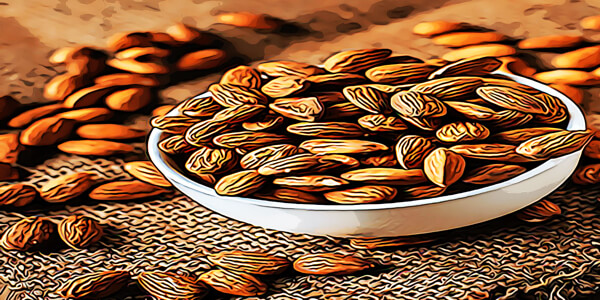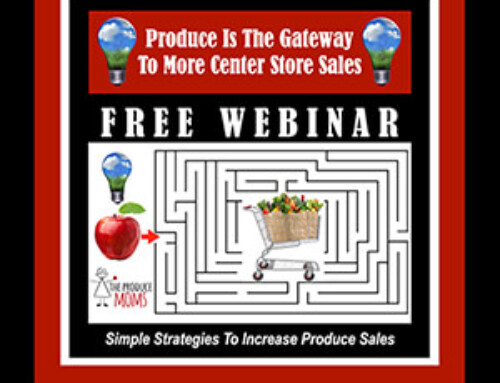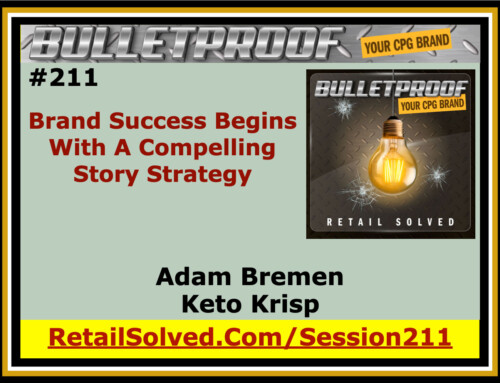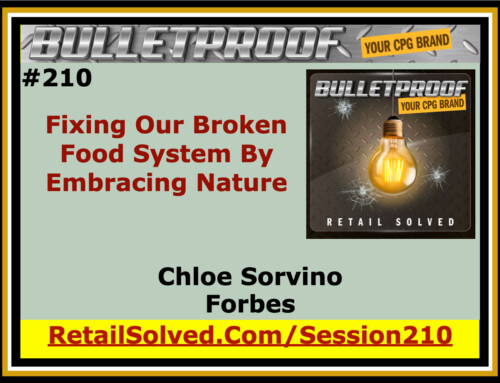Proteins will continue to grow in importance. Brands that remain laser focused on their shoppers will have a sustainable competitive advantage.
Shoppers are looking for more protein in their foods. According to Nielsen, 61% of shoppers are looking for foods that are high in protein*. Protein is one of the primary factors shoppers consider as they make their selections at retail and when they dine out. According to the Natural Marketing Institute, 43% of boomers want more protein in the products they buy followed by 37% for Millennials.
According to Nielsen, 50% of consumers have protein at every meal with 30% saying that the source of the protein does matter**. The same study also said that most consumers get their protein from dairy, eggs, fish, legumes/nuts/seeds, and then meat – in that order. Brands are actively seeking different ways to add quality protein in the products they create.
Increased protein intake is important for a variety of reasons including strength training, providing athletes with greater endurance, and helping people remain alert and focused. Foods that are high in protein are also important to those looking to lose weight as they can help curb cravings and satiate you for extended periods of time.
For these reasons, protein is showing up in more products and it is consumed during most every meal including in our snacks.
There is a new focus on alternative protein sources like plant-based proteins and insect proteins. At the heart of the conversation, what is really driving the growth in protein, is the quality of the proteins we consume. This is an area that big companies tend to overlook. Just as no two consumers are the same, there are vast differences in the types of proteins that are driving sustainable sales across every channel and across every meal occasion.
Clean label products are driving sales across every category. Organic is the ultimate in clean label. Consumers want products they can trust and have complete confidence in. Shoppers will gladly choose the products that meet all of their needs over the lower priced alternative. This is what is fueling the sustainable growth in natural organic products.
The consumers driving these growth trends believe that you are what you eat and that what you eat matters. They focus on the kind of protein they eat, how it is produced, where it came from, and where it originated. I’ve recently interviewed the leaders of several disruptive brands on my BulletProof Your Brand podcast working to provide healthy alternatives to the proteins available today. Their focus is on transparency, authenticity, and giving back to their communities. They have designed a “new ecosystem” for the foods they produce focused on the simpler strategies of yesteryear.
Leading the discussion on healthy proteins is how different proteins metabolize in our bodies and how they impact our overall health – from a nutritional standpoint. Cows and chickens had a much different diet throughout most of history. Their diets were changed in part to fatten them up, reduce the cost of feeding them, and to supercharge their growth. The industry found that the modified diets produced more food without taking into consideration the quality of the food they were producing.
This is similar to the discussions around GMO’s and highly processed foods. While the science has not confirmed that GMO’s are less healthy, many have made the argument that they are less nutritious. Generically speaking, removing the naturally occurring nutrients from food and replacing them with synthetic ingredients changes the way our bodies metabolize the food. The same holds true for the food (hay and grains) cows and chickens eat.
If we are what we eat, then the quality of our food matters. Our bodies were designed to thrive on minimally processed foods in the absence of any synthetic, enhanced, or artificial ingredients. This is the core mission for natural organic brands, to produce foods that are “free of” anything that is artificial and not found in nature. The explosive growth in these trends at retail helps to validate consumer preference. Shoppers are willing to pay a premium for protein that is grass fed and organic. They believe that it better meets their nutritional needs. The assertion is that grass fed cows produce milk that is easier for our bodies to digest which reduces bloating and other issues found in traditional dairy products***.
Organic chicken farming is another source of providing quality proteins. While the chickens are smaller than those raised by conventional methods, the meat is more tender and it has a much better taste profile along with more nutrients according to testimonials from executive chefs on the company's website***.
The products produced by these industry leaders pride themselves on complete transparency including introducing their consumers to the actual farmers responsible for their meal purchase. As a side benefit, the experts I interviewed both shared that their grass fed cows and the organically farmed chickens are healthier than their mainstream counterparts (the animals themselves are healthier – they have no need for antibiotics, etc.) ***.
I mentioned that mainstream brands tend to commoditize the products they sell and the customers that buy them. They tend to overlook what makes natural, natural. Natural brands have a more intimate relationship with the consumers they serve. Natural brands are the R&D of the CPG industry. They provide us with true innovation and authentic ingredients.
Read the rest of the article on Natural Product Insider
Dan's mission is “Empowering Brands and Raising The Bar”. His weekly newsletter, educational podcast and training courses have become an invaluable resource for brands and retailers seeking a competitive advantage. To learn more or connect with Dan, visit RetailSolved.com or email dan@cms4cpg.com.
©2018 BulletProof Your Brand. All rights reserved.
*Source: Nielsen two week online survey (April 2016) of 1176 respondents
**Source: Nielsen, Homescan Panel Protein Survey, April 2017 (US)
***Source: Insights from industry thought leaders shared on my BRAND SECRETS AND STRATEGIES: SECRETS podcast SECRETS 008 Brand building strategies that work by putting the shopper first with guest Joel Warady, Enjoy Life Foods, SECRETS 011 Sales growth strategies that focus on shopper satisfaction with guest Tim Joseph, Maple Hill Creamery, SECRETS 018 Discussing local and clean label growth trends with guest Jefferson Heatwole, Shenandoah Valley Organic, SECRETS 021 Shoppers want trust and transparency – the cornerstone of the natural channel with guest Robert Craven, MegaFood
Image is the property of CMS4CPG LLC, distribution or reproduction is expressively prohibited.






